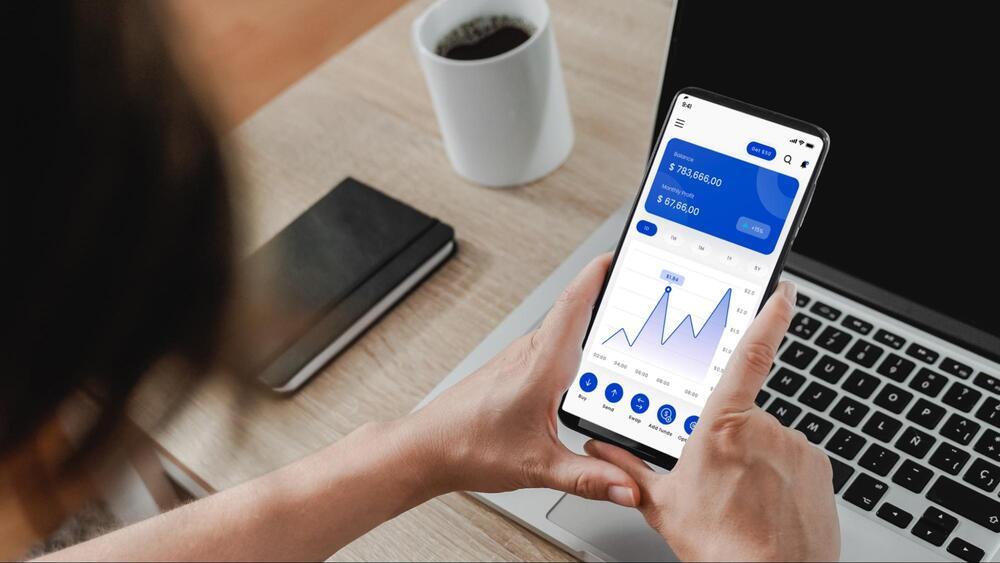A blockchain is a shared, decentralized ledger or database that is made up of a network of computers that work together to record and store information in a digital format. One of the best things about blockchain technology is its ability to provide a high level of data fidelity and security without the need for an intermediary. Therefore, it comes as no surprise that some of the world’s largest companies are integrating blockchain technology into their daily operations to drive innovation and efficiency.
Although used across a range of industries, including banking, healthcare, manufacturing, and real estate, blockchain technology is most commonly associated with cryptocurrencies. And rightfully so, as cryptocurrency has really gained traction in more recent years. In fact, approximately 10% of the global population using the internet today owns some form of cryptocurrency. Also, as of March 2023, there are around 300,000 daily Bitcoin transactions, while its biggest rival, Ethereum, has more than three times this many daily transactions, counting over one million Ethereum transactions per day as of April 2023.
And the blockchain market is only expected to get bigger. Namely, the global blockchain technology market is predicted to grow at a CAGR of 87.7% from 2023 to 2030, which means that more and more companies will be relying on blockchain testing to ensure their blockchain solutions work flawlessly and use it as a means to get ahead of their competitors.
Now, this brings us to our topic of interest—testing blockchain solutions.
How is blockchain testing different from other types of software testing?

Blockchain testing is a specific type of software testing that requires quality assurance engineers to have a deep understanding of blockchain technologies and its components, such as blocks, nodes, smart contracts, consensus mechanisms, transactions, and wallets. Due to the unique characteristics of blockchain technology, testing such applications is anything but simple and requires a lot of technical knowledge and expertise.
Failure to detect critical issues in blockchain-based applications when testing—particular ones related to security—can result in various issues like consensus protocol threats, smart contract bugs, and data transmission vulnerabilities which can in turn cause significant damage to companies.
In fact, just recently, a SushiSwap smart contract bug was exploited, draining around $3.3 million worth of Ethereum from a user's account. To avoid such threats and the reputational damage that is likely to ensue, following effective quality assurance practices when testing blockchain products is essential.
In this blog post, we will explore the key challenges of blockchain testing and investigate how they can be overcome.
Challenge #1: Understanding blockchain technology
Understanding blockchain technology is crucial for quality assurance engineers who are testing blockchain-based applications. The main reason being the complexity of blockchain solutions. Being aware of the underlying technology, like cryptography, distributed systems, and consensus algorithms, and how it works is important for efficient blockchain testing. Without sufficient knowledge, quality assurance engineers may not be able to identify potential vulnerabilities, defects, or security risks.
Overcoming this challenge is important because it allows quality assurance engineers to ensure that the application is working as intended, and helps to prevent potential security issues or bugs. However, taking into consideration that blockchain technology is constantly evolving and disrupting various industries, quality assurance engineers who are entrusted with testing blockchain-based applications need to have a genuine interest in the technology and keep up with the latest innovations in the field. This is the only way to ensure software testing is done correctly and efficiently.
Challenge #2: Lack of blockchain testing tools
Another challenge software testers often face when testing blockchain applications is finding the right blockchain testing tool. While there are various tools that can be used, software testers may not have adequate experience or access to these testing tools. This is another reason why having a good knowledge of blockchain technology is pivotal. If software testers are aware of all the different ways blockchain applications can be used, then they can identify more test scenarios and select the best testing tool to use—thus making the entire testing process more streamlined.
Challenge #3: Defining a test strategy
There are several reasons why software engineers may struggle when it comes to defining an efficient test strategy for blockchain testing—lack of understanding of blockchain technology, lack of standardization in the industry, complexity of the application, and limited testing tools. To develop a robust test strategy, software testers must identify the specific use cases and requirements for the application, as well as determine the appropriate testing methods and tools.
A great starting point for defining a test strategy for blockchain testing is to collaborate with software developers and consult other team members who are involved in the project. This will help testers to pin down the most important features of the application and make sure that their testing strategy covers all these features.
Challenge #4: Integration testing

As blockchain solutions are made up of multiple layers and rely on the different components and systems working together seamlessly, integration testing is essential. However, due to the complexity of these applications, integration testing can be quite difficult, especially for QA teams who are inexperienced in blockchain testing—or have limited knowledge of blockchain technology in general. To perform integration testing, it’s important to experiment with different testing tools and setups to ensure that all components of the application are functioning correctly and communicating effectively with each other.
Challenge #5: Load and performance testing
Load and performance testing is important for blockchain-based applications because they often involve large amounts of data. Testing the application's ability to handle large amounts of data and traffic can be a challenge, as the systems may become slow or unresponsive under heavy loads. Overcoming this challenge is important because it ensures that the application can handle the expected amount of traffic and data without crashing or experiencing performance issues.
To perform load and performance testing on blockchain-based applications, QA teams should understand how the solution works inside out, have a suitable testing environment, and have access to various resources—different networks, devices, testing tools, frameworks.
How to overcome blockchain testing challenges and ensure high-quality software?
To overcome the key challenges of blockchain testing, implementing the best quality assurance practices and working with experienced QA engineers is essential. At TestDevLab, we have an accomplished team of QA engineers who have a deep understanding of blockchain technology as well as ample experience in testing blockchain-based applications. With access to a wide range of testing devices and unique testing laboratories, we can make sure your blockchain solution meets the highest quality standards in terms of performance, security, integration, and efficiency.
Do you have a blockchain application and could use our software testing services? Contact us with your project details and we’ll let you know how we can help.




